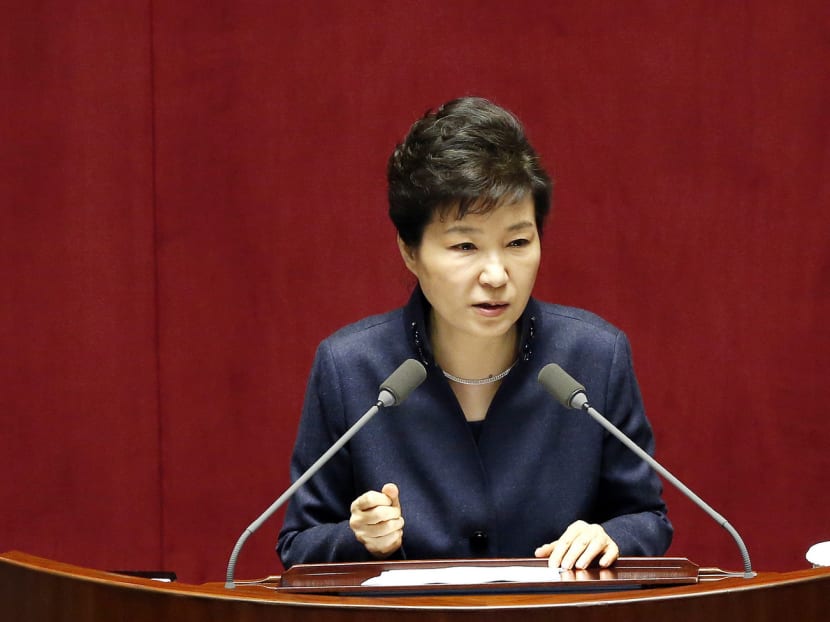Park says it is time to use the stick, not the carrot, with N Korea
SEOUL — South Korean President Park Geun-Hye yesterday signalled a tough new approach to derailing North Korea’s nuclear weapons programme, promising an uncompromising and more assertive response to Pyongyang’s provocations.
SEOUL — South Korean President Park Geun-Hye yesterday signalled a tough new approach to derailing North Korea’s nuclear weapons programme, promising an uncompromising and more assertive response to Pyongyang’s provocations.
It was time to face the “uncomfortable truth” that the North would not change, said Ms Park in comments that mark a significant reversal for a leader whose policy on Pyongyang had been based on what she described as “trustpolitik” that she hoped would lay the ground for eventual unification.
In a strongly worded televised speech to Parliament, she warned that South Koreans had, over the years, become “numb” to the threat from their neighbour, and said it was time to take a more courageous stand.
Arguing that efforts to foster cooperation with the North had led nowhere, Ms Park said it was time to prioritise the stick over the carrot in bringing Pyongyang into line.
“It has become clear that we cannot break North Korea’s will to develop nuclear weapons through existing means and goodwill,” said the President. “It’s time to find a fundamental solution for bringing practical change in North Korea and to show courage in putting that into action.”
Citing the North’s recent nuclear test and rocket launch, Ms Park said it was clear Pyongyang had no intention of discussing denuclearisation.
“If time passes without any change, the Kim Jong-Un leadership — which is speeding without a brake — could deploy a nuclear-tipped missile and we will suffer,” she said.
Ms Park’s comments are likely to trigger an angry response from the North, which is already smarting from her unprecedented decision last week to shut down the operations of South Korean firms at the jointly-run Kaesong industrial estate in North Korea.
The operations at Kaesong were shut down in protest at the North’s nuclear and long-range rocket tests.
Defending the closure of Kaesong, Ms Park said it was “just the beginning” and signalled further steps that she argued were needed to derail the North’s nuclear programme.
“The government will take strong and effective measures for the North to come to the bone-numbing realisation that nuclear development will not help its survival, but rather, it will only speed up the collapse of the regime,” she said.
After Ms Park’s speech, Yonhap news agency cited defence officials in Seoul as saying four United States F-22 stealth fighter jets would fly a mission over South Korea today in a show of force.
In response, Chinese Foreign Ministry spokesman Hong Lei said the situation in the Korean Peninsula is currently at a complicated and sensitive stage.
“We hope the relevant parties can bear in mind regional peace and stability, and do more that is conducive to ameliorating the tension,” he told a daily news briefing yesterday.
Dr Choi Kang, vice-president of the Asan Institute think-tank in Seoul, said Ms Park’s speech flagged a clear and significant policy change. “It is a shift from an ideal North Korea policy to a realistic North Korea policy,” he said.
“In the past, incentive was stressed as the most important means for denuclearising North Korea. Now, by making North Korea pay a practical price, it has shifted to changing North Korea’s strategic calculation and inducing it to make a decision,” he added. AGENCIES







